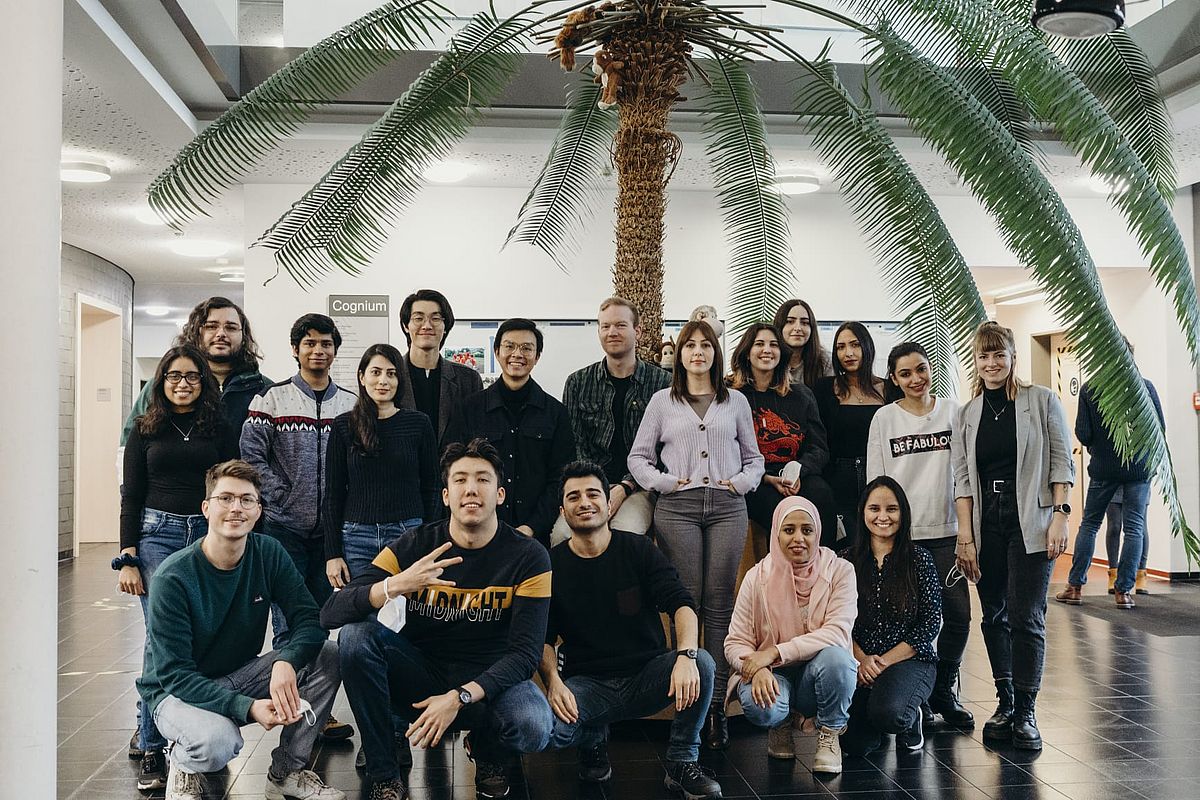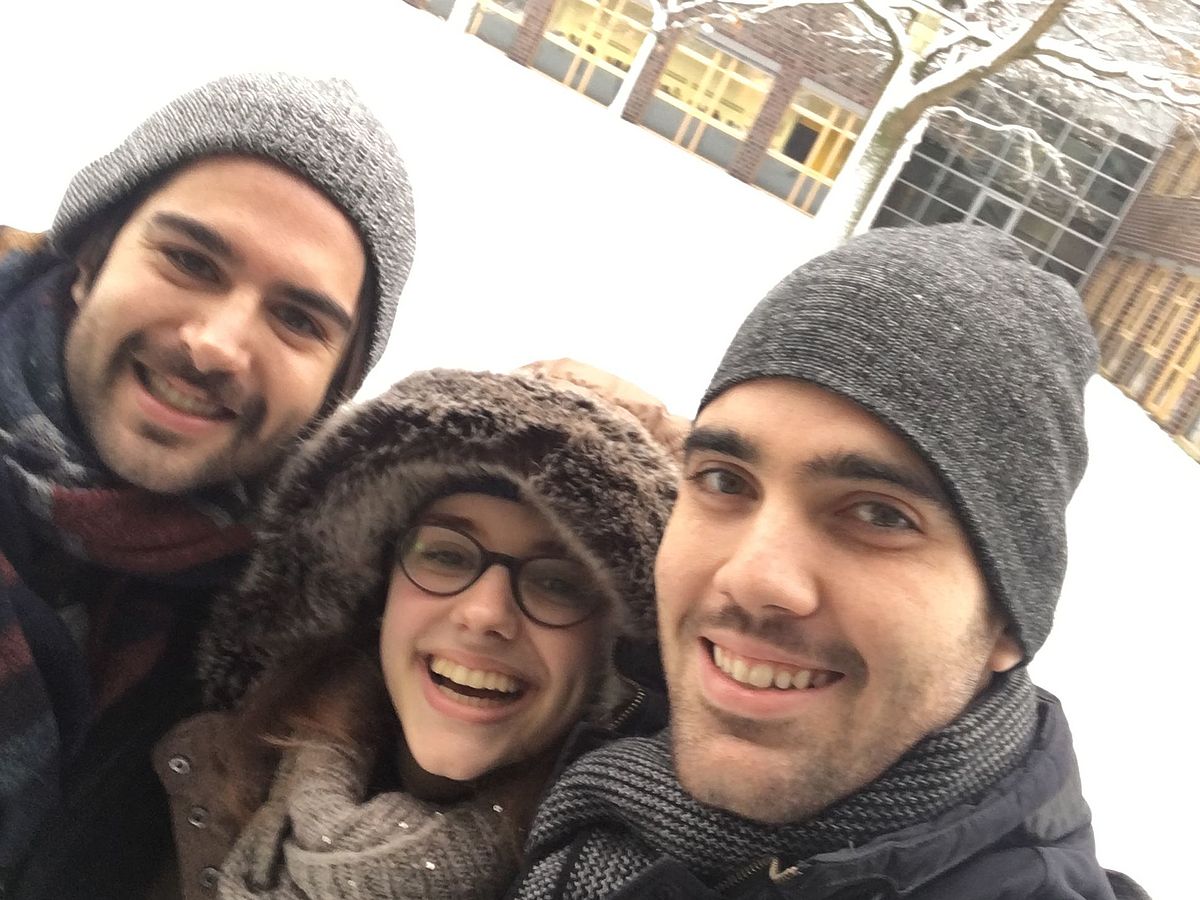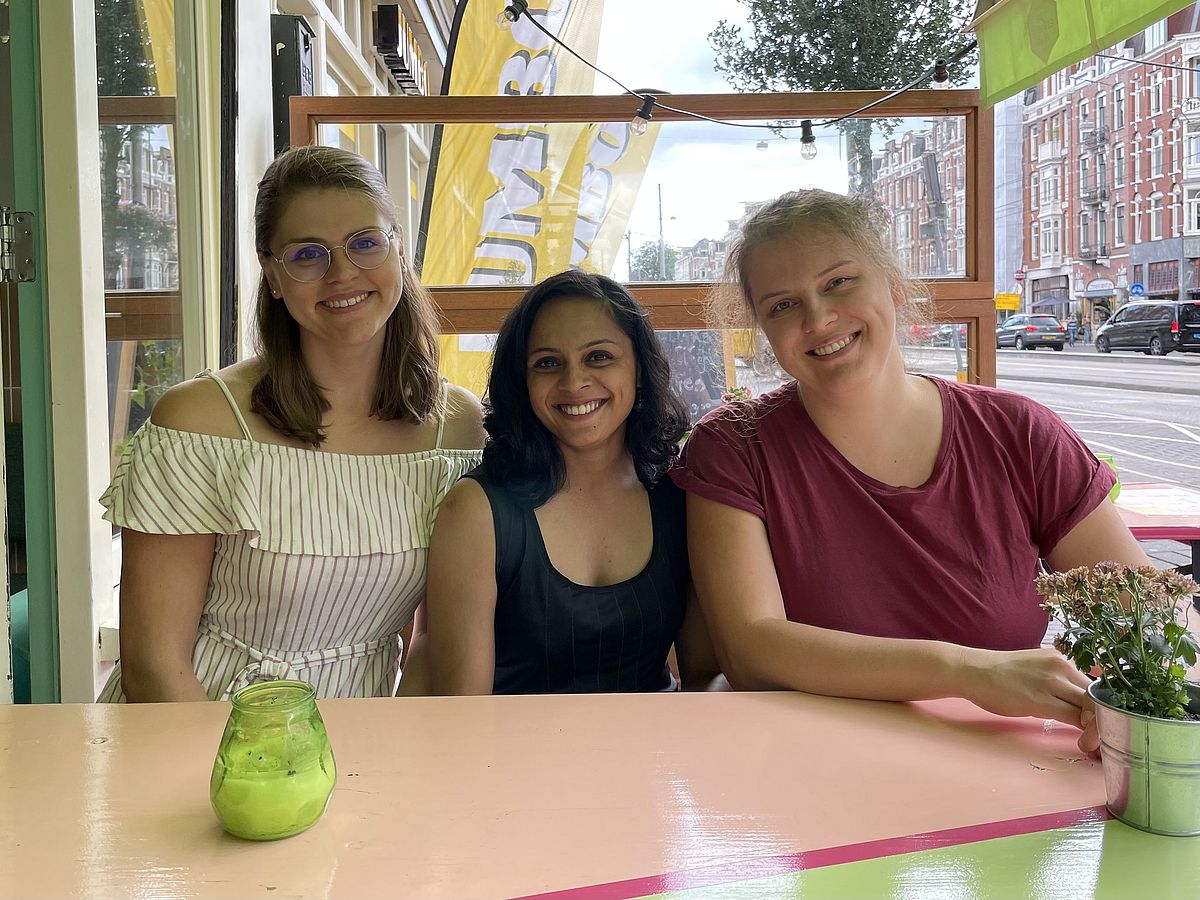Since the start of the programme in 2008, more than 250 students from many different countries have graduated in the master programme Neurosciences at the University of Bremen. About 68% of these graduates have continued their academic career with PhD studies in research institutions in Bremen and all over the world.
Performance and success

Career in Neuroscience
Statistics
Neuroscience Careerday

Neuroscience Careerday in March 2023
organized by students and Alumni
Due to the Corona Pandemic and the reduced presence of students in the labs, a need for insights into career pathways in Neuroscience emerged. Based on that idea, an alumnus Sidar Aydin and the two students Daniel Almes and Katharina Korb planned a Zoom meeting in March 2022. Several Alumni of the Master program Neurosciences were invited. After the great response, attendance (30 registrations) and benefits (some students got contacts which resulted in internships), we decided to repeat the event.
In March 2023, additionally, the event was opened to Bachelor Biology students of the University of Bremen, since they too can benefit from this information for their choice of Master degree. In total, 34 students attended.
The aim is to share first hand accounts on life as a PhD student, staying in academia or starting a career in the industry. Just between alumni and students, an open space for professional and personal considerations was shared, helping students to make informed decisions in a topic which often seems overwhelming. An additional Q&A Session with the students helped answering remaining questions and giving intriguing insights which could not be obtained in everyday student life. Hopefully, this has helped students to make informed decisions about their future and get in closer contact with researchers.
Early Career Success: How it started in Bremen
Neurosciences Alumnus: Mario de la Piedra Walter
now Medical Doctor
"The MSc Neuroscience program is equally diverse and well-structured. Due to its holistic approach, it offered me the opportunity to know people from different fields and backgrounds, enriching the learning experience.
Both personally and professionally, the Master's Studies constitute a vital part of my formation.Not only because of the people I was able to meet and make part of my life, but also the various tools the program granted me.Coming from a medical background, the Neurosciences Program allowed me to learn how to perform research of quality and expanded my vision of brain research. The first year provided me with solid grounds in different areas, ranging from neuropsychology and neuropharmacology up to statistics and programming. With the assistance of the professors, I was able to put that knowledge into practice in the areas of my own interest.
In my current profession, the Master's Studies have opened opportunities for collaboration at different levels and have strongly molded my way of approaching and solving problems. It would not be a cliché to say that the M.Sc. Neuroscience in Bremen was one of the most positive turning points in my life."
Neurosciences Alumna: Merle Sagehorn
now PhD at the Institute of Psychology at the University of Osnabrück
"The program offered me the opportunity to explore and deepen my interest in the field of neuroscience.
After the intensive and substantial first semester with its comprehensive courses, I had the possibility to gain enough practical experience in scientific work to decide to pursue a career in this direction.
Besides the great support from my professors, I enjoyed studying in a colorful, ambitious and hardworking, but also very supportive group of students, some of whom have remained my friends until today.“
Neurosciences Alumna: Lisa Steffens
now studying Human Medicine at the University of Bonn
"I am Lisa and I graduated from the Neuroscience master’s program at the University of Bremen in early 2021. I finished my Bachelor’s degree in Biology with a focus on Neurobiology in 2018 and decided to apply for the Master program in Bremen since I really liked its focus on cognitive Neuroscience and was curious to learn more about computational Neurosciences as well.
During my time in Bremen, I was able to gather a lot of theoretical and practical knowledge about neuroscience and its diverse methods. In the first semester, broad theoretical foundations were built, which were then further deepened during the elective modules with lots of hands-on training in the following semesters. In the third semester, the program offers the opportunity to do lab rotations in different areas in labs all over the world, which is - to my knowledge - quite unique for a neuroscience master’s program.
What I also really liked about the program in general were the appreciative and supportive environment, great organization and the small class size of about 20 students which made the contact with the professors, lecturers and organizers very straightforward and personal.
Next to the studies, I also met some great people from all over the world with different backgrounds like Biology, Psychology, Cognitive Science and Mathematics.
During my lab rotation and master thesis at the department for epileptology at the University Hospital Bonn I realized that I wanted to combine the knowledge which I obtained during the Neuroscience Master with a career as a medical doctor, so I started my studies in Medicine after having finished my master thesis.
Even though I’m now pursuing another degree, I wouldn’t want to miss the master’s program in Bremen. I learned a lot about how diverse and rapidly evolving neuroscience is and fell in love with the field even more. Thanks to the master’s program my career goals were shaped and the foundation for future translational research was built.
Overall, the Neuroscience Master is a great opportunity to gain insights in the different aspects of this amazing field depending on one’s individual interests - let it be cellular, computational or cognitive neuroscience - and learn about various interesting methods for better understanding the most complex organ of the human body."



